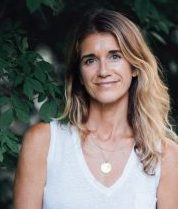The Epilogg team had a chance to meet Wendy Longacre Brown, a death doula who has a special interest in helping people preserve their legacies. This is the first part of a two-part series. Enjoy!
Educate us! What is a death doula?
A death doula–-also known as an end of life doula–empowers a dying person or their family to create a meaningful transition by providing s emotional, spiritual, physical and educational support. It’s never too early to bring a death doula on, and it’s never too late.
How do you help with end of life?
There are three phases we help with. The first phase is planning for the actively dying moment. Is it important to you to be at home, to be with your family, to be able to be touching your loved ones? Or is it more important to be truly fighting, to be holding on for as long as you can to try all the alternative medicines?
Then phase two is actively dying. You can talk to a doula about what that is, Such as, dealing with having visitors, if they don’t want anyone around, or maybe this person who is dying wants everyone that comes into the room to take off their shoes and have a deep breath and think about something they’re grateful for before entering the room. Just to be able to – have control over that space…so you don’t have to worry that there’s a good friend coming in who’s sobbing at the bedside and that is not what you want.
Then the third phase is reflections with loved ones on what it all meant. Often the loved ones don’t see it; we want them to be present for their own emotions and for the dying, but they don’t see all the details of that time. They don’t notice the weather, for example. So we are there to share some of those things. Sometimes there are rituals – they still need or maybe it’s healing touch. We can do visualizations to let things go or read certain poems or letters to still write.
You probably didn’t identify this as a career goal when you were a kid! What drew you to becoming a death doula?
I was in a whole different career! It was about four and a half years ago: I lost my uncle to Alzheimer’s and lost my niece Sophia at 22 weeks in utero. Death was on my mind a lot and I was – getting more comfortable with talking about it. I signed up for a workshop called ‘Speaking of Dying’ a four class workshop over four weeks. During the workshop, we had lots of reading assignments; looking at the bigger picture of your wishes around death and also what’s going on in hospitals. I realized how many people were dying in hospitals that wanted to die at home. Looking at some of those options, I thought, there’s something for me here, I just feel really comfortable around death. It was my sister who is a birth doula who told me there are end of life doulas. The moment she said that, it just hit me.
You don’t have to become certified as a doula, but I decided for my own training that it would be helpful. I trained with International End of Life Doula Association (INELDA). About a year later I launched Chemin, which is French for pathways. Ultimately we all have our own pathways and they look differently and they all should be honored in whatever form they come out to be.
Is a Death Doula a new idea?
Our work as end of life doulas, is not anything new; it’s something that’s been going on for hundreds and hundreds of years. People have been supporting others in death, traditionally in their homes and their farms. It’s just when the medical world started working to prolong life (which is lovely and we all are looking for cures and ways to be around a loved one longer), people forgot where the beauty can be found in end of life and dying. So that’s what doulas are doing again. It’s something that’s been in our blood, in our ancestors and our heritage for years and years, we’ve just forgotten how to do it. I look at Epilogg and have a similar thought, ‘Oh, where’s this been, of course we need that, are you kidding?’ (Editor’s note: We agree!)

